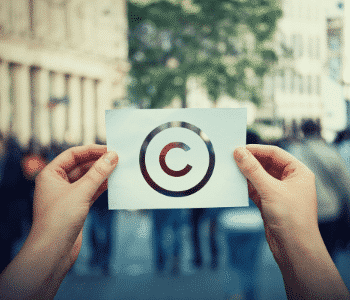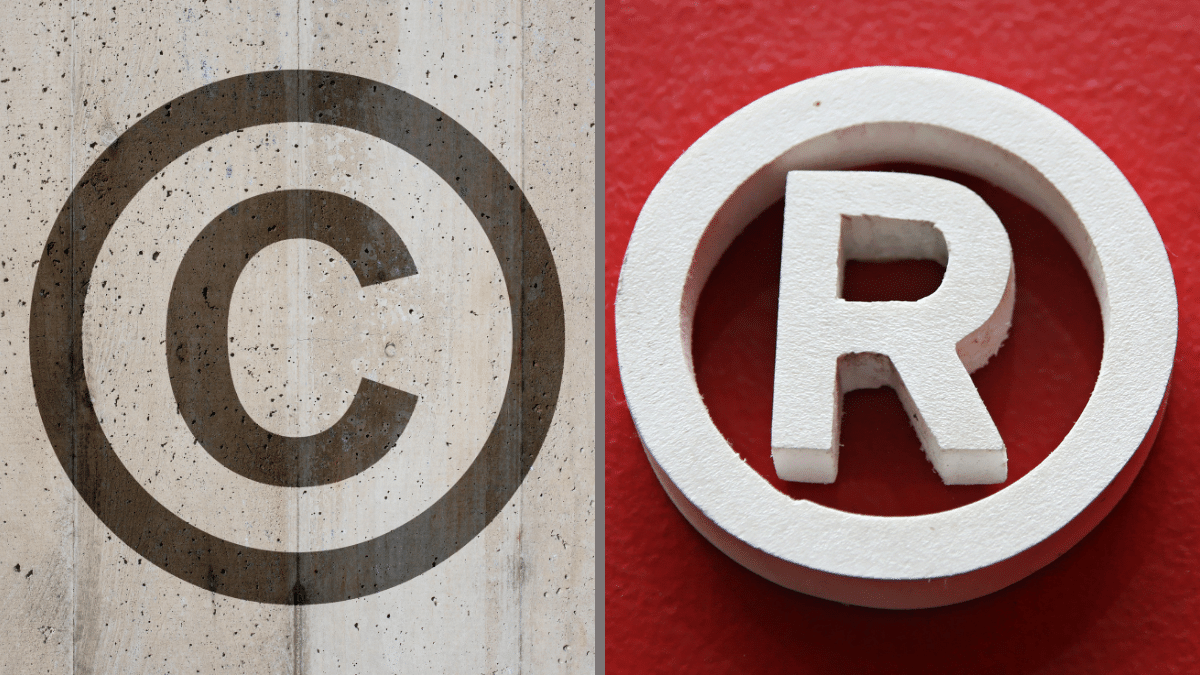Trademark is Not the Same as Copyright

Back in October 2012, I created a guide for journalists that explained the difference between patents, trademarks and copyrights. In addition, it looked at other related terms, such as fair use and public domain, as well as various symbols.
However, despite these and other resources (many of which have existed for more than a decade prior to mine), confusion is still a problem among journalists and laypeople alike.
The confusion is worst between copyright and trademark. Take for example this article on Page Six, which looks at a trademark battle in the Philippines that pits Prince Harry and Meghan Markle against a local businessman.
Though clearly a trademark dispute, both the headline and the article refer to it as a “copyright” one, using the terms interchangeably and even tagging the post with “Copyright Law”.
Also this week, on PopCulture.com, the headline for this article about wrestling promotion All Elite Wrestling filing a trademark application for the name Captain Insano. However, the headline refers to it as a copyright dispute even though both the article and the source article correctly identify it as trademark.
Though none of these are as serious as the “5 Everyday Things You Won’t Believe Are Copyrighted” article on Cracked that featured only one actual copyright story, they contribute to something of a generification of the word “copyright” where the word is synonymous with all intellectual property, not just copyright itself.
This poses some significant challenges in trying to discuss copyright in the future, especially as copyright continues to be an increasingly controversial subject.
Copyright as a Boogeyman
Copyright is in the news a great deal these days and is a constant source of public controversy. Whether it’s lawsuits over pirated content, videos being removed for copyright claims or the constant issues streamers are having, copyright grabs a lot of headlines.
To that end, there are real conversations to be had about the role of copyright in our modern life. The way people interact with copyright-protected works has changed drastically in the past decade including meme, gifs, streaming, etc. and the law has not kept up.
This can make copyright seem as if it is everywhere. However, the intellectual property landscape is vast, and copyright only makes up a fraction of it. Patents and trademarks are also having an increasing impact on our daily lives, though often in more subtle ways.
Still, of the types of intellectual property, copyright is the one that individuals are most likely to run into in their daily lives. They aren’t likely to be sued for trademark or patent infringement, but they are likely to have a video pulled, a post removed or a stream halted for copyright reasons.
This can make it feel like copyright is intellectual property. When 100% of your intellectual property interactions are copyright, copyright feels like 100% of intellectual property.
This also makes copyright a much more popular and powerful keyword and very tempting to include. Though actual searches favor patents over copyrights, for many there’s an enormously powerful emotional connection (good or bad) that comes with the word “copyright” that often isn’t there with “trademark” or “patent” due to their personal interaction with it.
Though most of the confusion is caused by innocent mistakes, the recurring issue of “copyright” appearing in headlines about trademark stories indicates some are choosing it for the better search terms, often without realizing that it’s inaccurate to use them as synonyms.
Much of this confusion might seem harmless, but it’s far from it, especially when issues such as copyright reform are discussed. People who talk about “copyright reform” are often proposing changes to trademarks or patents. This makes real conversations about copyright more difficult, and those dialogs are already difficult enough due to copyright’s own complexity.
In short, it’s a subject that is confusing enough without so much added confusion. These kinds of mistakes only serve to make the copyright conversations more hostile, more confusing and less productive.
The Harm of the Confusion
The growing importance of intellectual property in our daily lives should be a call to journalists and other authors to call out the details and nuances in the law.
The more something matters, the better we should strive to understand it.
However, that’s not what is happening with copyright and intellectual property broadly. It’s been 21 years since the Napster lawsuit was filed and, though some things are better understood than they were in the late 90s, much of the coverage of intellectual property law has remained very reductive.
Much of that reduction has been focused on copyright and has involved the conflation of other kinds of intellectual property, in particular trademark, with copyright.
That is harmful to both copyright and trademark as well as the readers who often walk away with a wrongful notion about both.
Copyright is not trademark. Copyright is not patent law. Copyright is not the whole of intellectual property. The quicker this is broadly understood, the better and richer our conversations can be about all the above.
Want to Reuse or Republish this Content?
If you want to feature this article in your site, classroom or elsewhere, just let us know! We usually grant permission within 24 hours.
